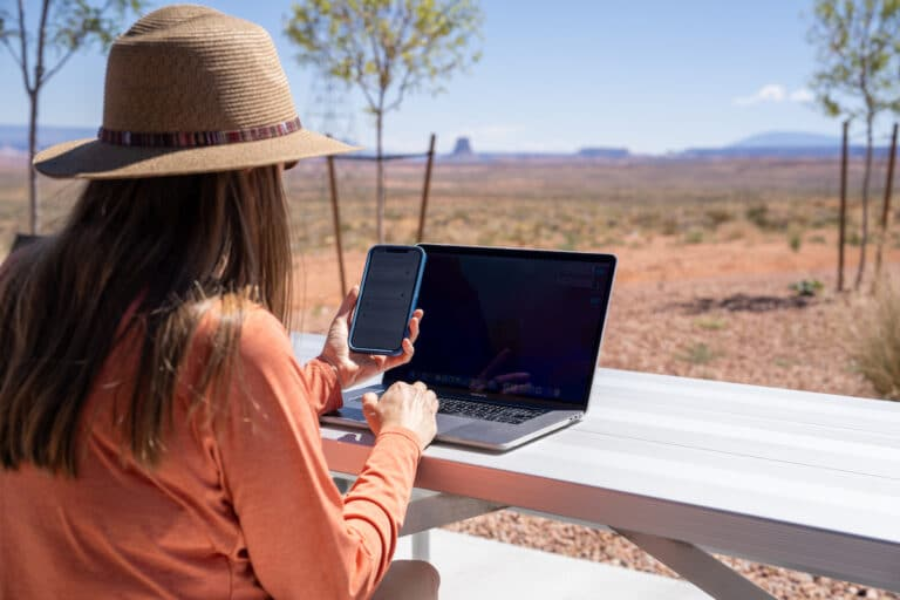Staying Connected: How to Access WiFi in Remote Travel Destinations
Table of Contents
- Importance of Staying Connected
- Portable WiFi Devices
- Using Local SIM Cards
- Accessing Public WiFi
- Safety and Security Tips
- Cost Comparisons
Importance of Staying Connected
Traveling to remote destinations has its unique allure and many challenges. Among these challenges, one of the most crucial concerns is internet connection. Whether navigating unfamiliar landscapes, accessing important travel information, or sharing your travel adventures with loved ones, an internet connection can significantly enhance your travel experience. When exploring places like Iceland, having reliable WiFi in Iceland can transform your journey, making it easier to stay informed and connected. The digital age has made it easier for travelers to maintain connectivity, even in the most isolated regions.
In fact, according to a study, over 85% of adults now own smartphones, emphasizing the importance of mobile internet. Proper tools and knowledge keep you connected and offer peace of mind and convenience during travels.
Portable WiFi Devices
Portable WiFi devices are becoming increasingly popular among travelers for good reasons. These small, handy gadgets allow you to connect multiple devices simultaneously, offering a reliable and consistent internet connection wherever you go. Whether surrounded by the breathtaking landscapes of Iceland or navigating bustling urban centers worldwide, portable WiFi devices ensure you remain online without hassle.
Advantages of Portable WiFi Devices
- Global coverage that supports internet access in numerous countries.
- The ability to connect multiple devices is ideal for groups or families.
- Ease of setup and use, often requiring just the push of a button to get online.
These devices often come with rental or purchase fees, but their convenience and reliability usually outweigh these expenses. For instance, having a portable WiFi device can save you from the uncertainty and inconsistency of public WiFi networks, letting you focus more on enjoying your travels.
Using Local SIM Cards
Buying a SIM card from a local provider is a convenient and cost-effective option, particularly for tourists staying in one area for a long time. Many countries now offer tourist-friendly packages that provide ample data allowances, catering to the needs of foreign visitors.
Steps to Get a Local SIM Card
- Research local providers and their packages before your trip to understand your options.
- Upon arrival at the airport, a local store, or an authorized retail outlet, purchase the SIM card.
- Activate the SIM card and data plan per the instructions, which usually involves simple steps.
Local SIM cards are highly beneficial for extended stays. They offer cost-effective internet solutions that can easily integrate with your mobile device. They typically offer better network coverage and higher speeds than international roaming options. Additionally, using a SIM card from the area, you can fit in with the locals and enjoy advantages such as cheaper local calls and data.
Accessing Public WiFi
Public WiFi is available in many places, including cafes, hotels, and shopping centers. It can be an excellent backup option for occasional internet use. However, due to its inherent security risks, it is essential to exercise caution when using public networks. Public WiFi networks are often unsecured, making them a target for cybercriminals who might be looking to steal personal information.
Best Practices for Public WiFi
- Always use a Virtual Private Network or VPN to secure your connection and encrypt your data.
- Avoid connecting to public WiFi for sensitive data or financial transactions.
- Ensure that your device’s security software is up to date to protect against potential threats.
Although public WiFi is convenient and usually accessible, using it cautiously and implementing proper security measures to safeguard your data is essential. An instance would be a VPN enhancing security through encrypting your internet connection and protecting your data. By adhering to these precautions, you can safely utilize public WiFi without compromising your safety.
Safety and Security Tips
Internet safety is paramount while traveling, particularly in unfamiliar areas. By adhering to a handful of straightforward security recommendations, you can ensure your safety while using the internet. Above all, utilize robust, distinctive passwords for your online accounts to avoid unauthorized entry. Adding two-factor authentication enhances security by mandating an additional verification method, increasing the difficulty for hackers trying to access your accounts.
Additional Security Tips
- Utilize a trustworthy VPN to secure your online connection and safeguard your information from nosy individuals.
- Beware of phishing scams and malicious websites that frequently aim at travelers through deceptive emails and pop-up ads.
- Avoid connecting to unfamiliar WiFi networks without proper security measures in place. Cybercriminals could set up these networks to steal personal information.
Updating your device’s software and security settings can also help you defend against potential threats. Man updates contain fixes for security weaknesses that hackers could exploit. Implementing these security measures can significantly decrease the chance of cyber threats, guaranteeing a more secure online experience when using mobile devices.
Cost Comparisons
The cost of staying connected varies depending on the method you choose. Portable WiFi devices may come with rental or purchase costs, but they offer unparalleled convenience and reliability. On the other hand, local IM cards are generally more affordable, especially for long-term stays, providing significant savings on data costs compared to international roaming charges. Public WiFi is usually an attractive option for budget-conscious travelers but comes with security risks.
Comparing Costs and Benefits
Balancing cost and convenience depends on your travel style and internet usage habits. For example, investing in a portable WiFi device might be worthwhile if you rely heavily on internet access for work or communication. However, if your internet needs are minimal, opting for public WiFi or a local SIM card could be more cost-effective. Assessing your requirements and budget limitations will help you choose the most appropriate communication method while traveling.
Keep an eye for more news & updates on GlamourUer.Com!






